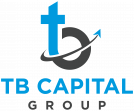We invest primarily in mid/large size, B/C class multifamily properties in strong primary and secondary submarkets. There’s a huge opportunity to add value to “mom and pop” managed properties by adding professional management and bringing living conditions up to the standards that residents deserve.
- Returns are in the form of excess cash flow from rents, and an equity bump when there is a liquidity event, such as refinance or selling the property.
- We look at 100+ assets to find one that has the ability to distribute cash monthly and gives a high degree of confidence that TB Capital Group can execute its value add strategy. So, when it comes time to sell, the targeted returns can be delivered.
Every multi-family property investment is different and there is never a guarantee on an amount of return on investment. However, we typically strive to achieve a double-digit annual return with no guarantees over the life of the investment. This comes from cash-flow, forced appreciation from adding value, and the profits from the disposition of the property. In addition, we target a 12%-15% IRR (Internal Rate of Return) over the life of the investment. We invest our own capital into these properties and seek every opportunity to maximize investor returns. We discuss the business plan, projected returns, and equity structure with investors for each investment property.
- Investors are Limited Partners that have NO active investor duties in a multifamily syndication. The distributions that an LP earns either monthly or quarterly, or any return for that matter is truly passive in nature. The GP or sponsor group is simply providing an opportunity to investors to invest alongside them, into a stable and appreciating asset with no active real estate investing role whatsoever.
- The General Partners are the individuals who are putting the multifamily investment opportunity together. They then manage the asset, execute on the business plan and they then offer that investment opportunity to passive investors. They are interchangeably referred to as the syndicator, the sponsor, or the operator.
Most of our deals are open to accredited and non-accredited (sophisticated) investors. There may be some instances where accredited investors are only allowed to participate in an offering.
Regulation D of the SEC (Securities and exchange commission) act of 1933 defines an accredited investor as (OR) An individual with income exceeding 200k in the previous year, or 300k jointly with a spouse and a reasonable expectation of the level for the current year An individual (or jointly with a spouse) that has a combined net-worth in excess of $1MM at the time of the purchase of the security
An investor can expect to receive monthly or quarterly distributions depending on the specific business plan for each investment property. TB Capital Group may also distribute additional capital to investors from time to time. This depends on the performance of the properties and when properties are sold or refinanced.
Investors can typically expect to commit their capital to an 18 month to 5 year hold period before we employ an exit strategy, such as a refinance or sale. This time period varies based on the specific business plan being executed for each property. Economic conditions may alter the strategy. Investors will receive projected timelines upon acquisition of the property and throughout the life of the investment. We the sponsors will always attempt to remain consistent with the initial projection and will execute the strategy that results in the greatest returns for all investors.
$50,000 is typically the minimum to invest in a project depending on the investment property. Learn how to invest using your current IRA/401K money without penalty from a third-party self-directed custodian company. Please contact TB Capital Group for more details.
